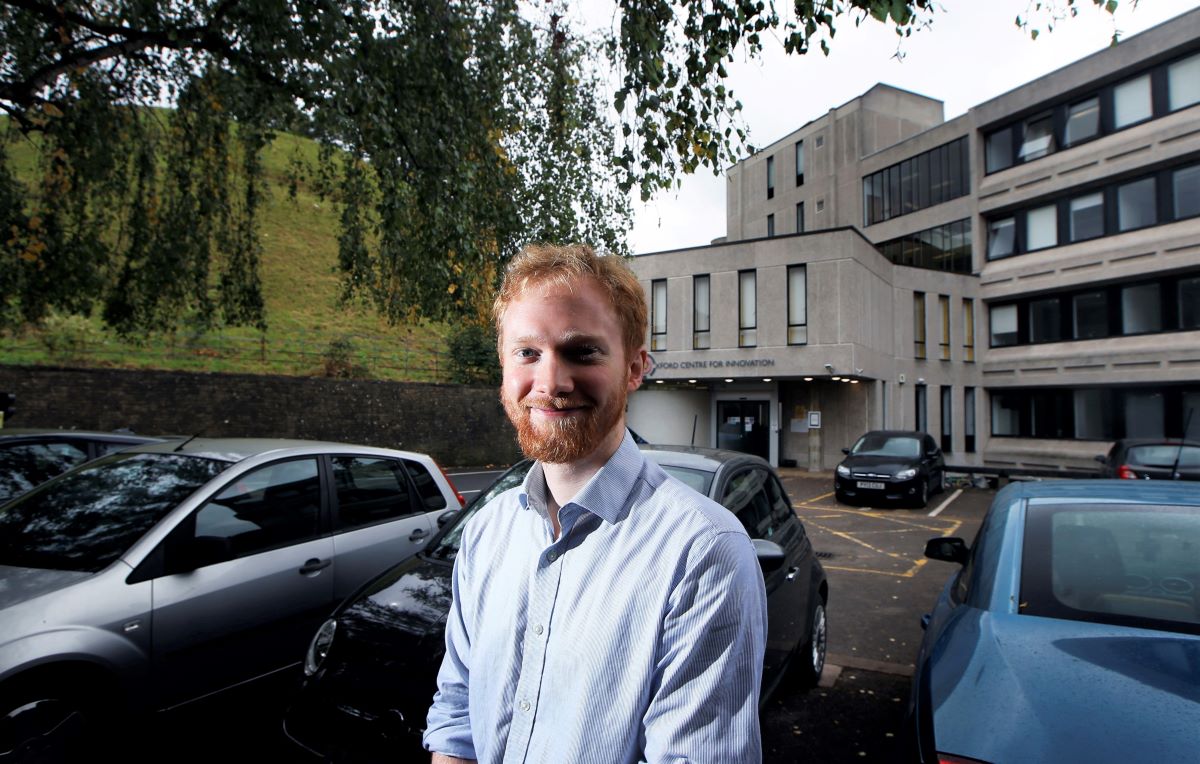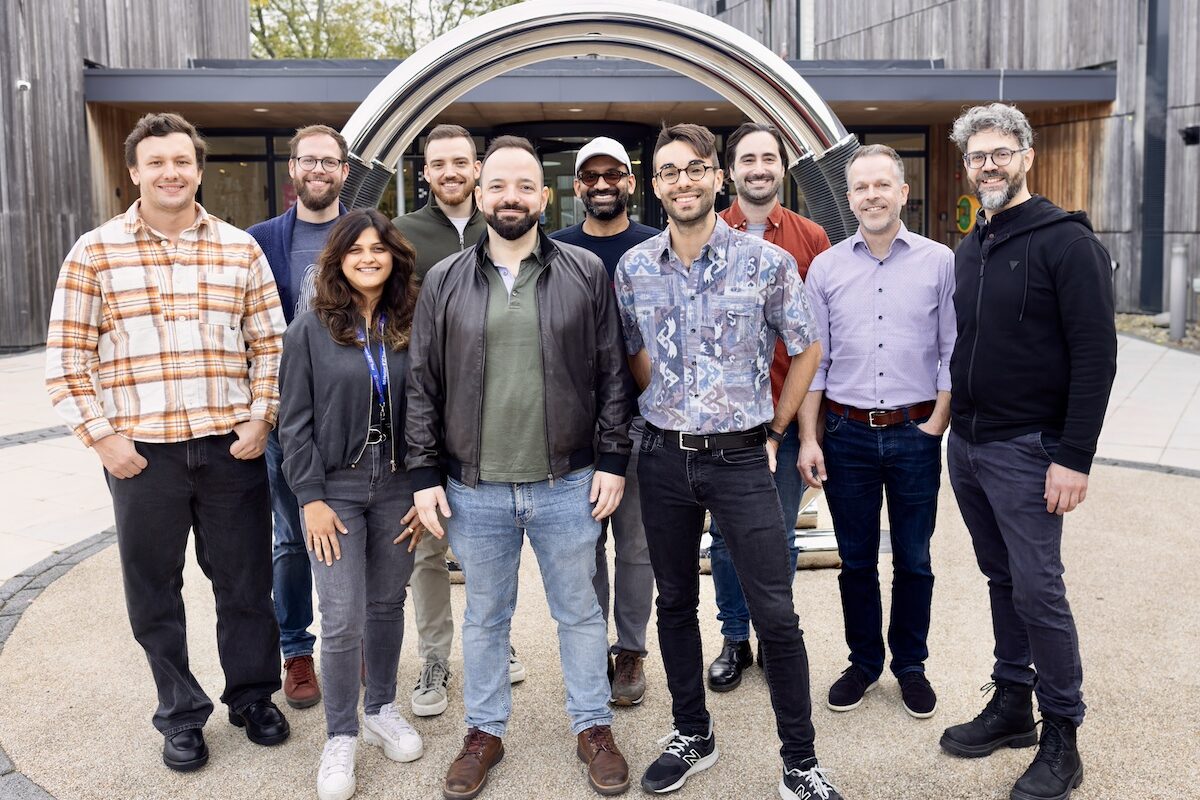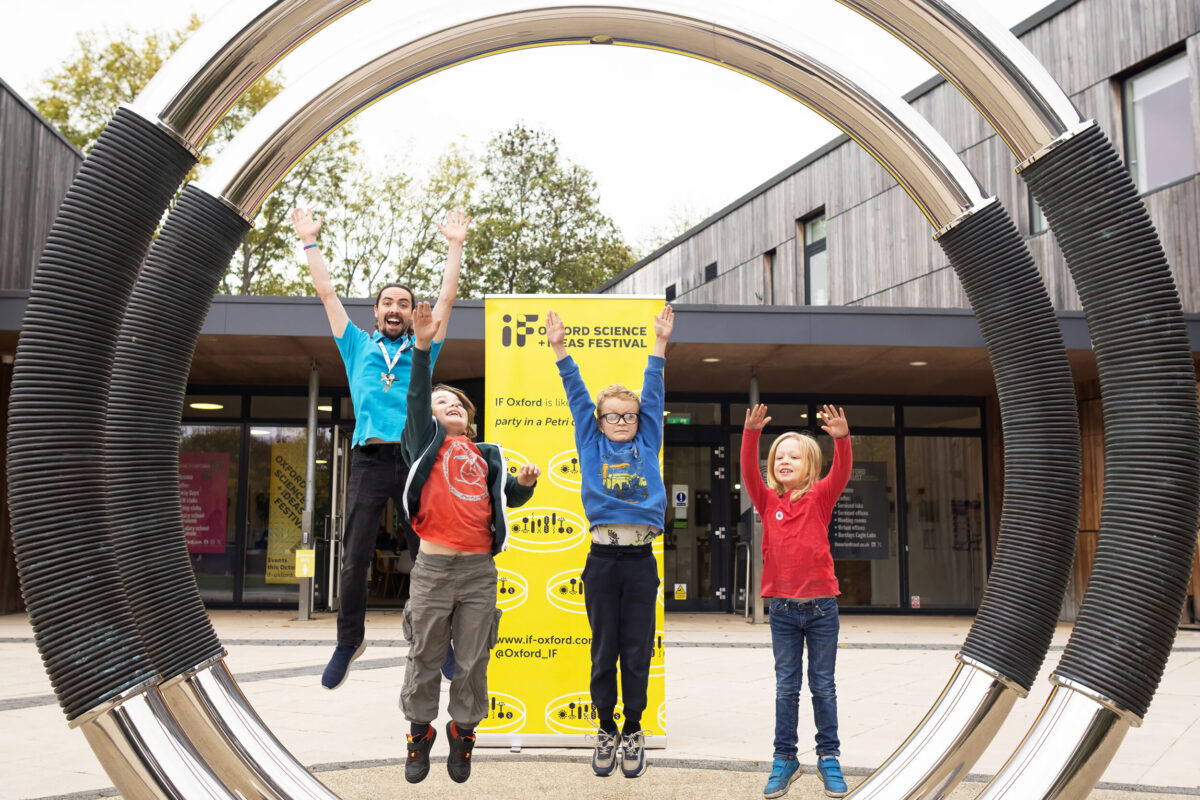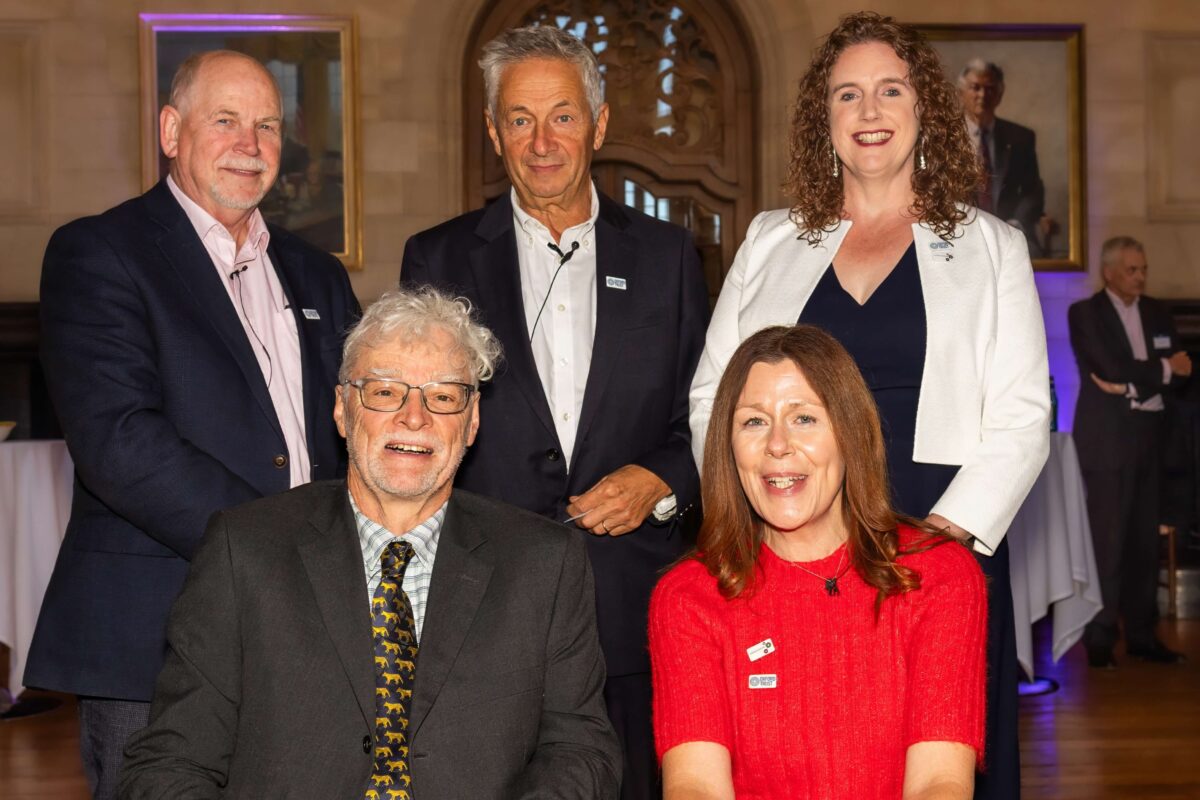Now, seven years since setting up in the Oxford Centre for Innovation, Infleqtion UK moves on to bigger premises at Oxford Technology Park for the next phase of the company’s growth. It is a celebratory farewell to one of the centre’s long-standing clients.
We spoke to President of Infleqtion UK, Dr Tim Ballance, about his time in The Oxford Trust’s innovation centre in the heart of the city.
Exponential growth
The UK subsidiary of the US company Infleqtion, formerly known as ColdQuanta, was established in 2014, but it was only when Tim joined in 2017 that it set up its base of operations in Oxford.
Tim chose the Oxford Centre for Innovation as its location as he says, “the Centre stood out then as the best place for us to be, and I think I was proven right.” The team has grown from one person in 2017 to 50 people in 2024, with most having joined within the last two years to drive the company’s expanding and exciting quantum tech portfolio of projects.
The first milestone
Tim recalls the early start in the innovation centre. “We had a small ‘cupboard’ space on the first floor, with room for two desks and a coat stand.” But it was within this small space that Infleqtion UK’s first product – the PICAS or Photonically Integrated Cold Atom Source – was invented, developed over a two-year period, and sold. Tim reflects on this achievement as one of the highlights of the past seven years and remarks that “despite being in such a small space, we were able to deliver.”
The core technology
At the heart of the PICAS lies Infleqtion’s Quantum Core™ technology, where lasers cool atoms to near absolute zero, or -273.15°C, creating a state of matter where atoms behave as a collective or wave. Engineering atoms in this state enables powerful new opportunities for technological developments.
While Infleqtion UK continues to make and sell the PICAS as a speciality product for the quantum research and development community worldwide and is continuing to develop systems around it, over the seven years in the centre, its portfolio has expanded to apply its evolving Quantum CoreTM technology across three main areas of development: inertial sensing; quantum computing; and timekeeping.
New improved navigation systems
Quantum inertial navigation systems (Q-INS) using quantum inertial sensing through acceleration and rotation sensors will offer higher levels of accuracy and resilience than current satellite navigation systems (like the well-known GPS), which are vulnerable to various risks such as jamming.
Infleqtion UK has been running parallel projects exploring Q-INS. One of the highlights from the past seven years, says Tim, was the successful flight trial earlier this year, with Science Minister Andrew Griffith on board, testing its compact optical atomic clock (TiqkerTM) and ultra-cold-atom-based quantum system, in collaboration with aerospace companies BAE Systems and QinetiQ.
In parallel, the company has also been working on systems for maritime applications with the Royal Navy through the Q-NAV project, exploring hybrid classical and quantum sensors and navigation systems. Sea trials are set to take place in 2025 in collaboration with the Royal Navy Office of the Chief Technology Officer.
Pioneering quantum computing in the UK
Infleqtion UK became a significant role player in accelerating the development of the UK’s quantum computing capabilities and infrastructure when it was selected earlier this year, among only six others, to develop and deliver a quantum computing testbed (or early-stage quantum computer) for the National Quantum Computing Centre (NQCC).
A team of 10 people is currently working on site at NQCC at Harwell Campus, building their neutral atom quantum computer. In July, the team announced a milestone in being the first company to deploy hardware under the quantum computing testbed programme and they expect phase one of the project to be completed in 2025.
Quantum clocks to be the first widely-adopted quantum technology
Infleqtion UK is using quantum tech to make highly accurate atomic clocks to improve performance of current state-of-the-art timekeeping by 50 to 100 times. Its TiqkerTM atomic clock is their first product in this space, and the first UK sale took place earlier this year.
Tim says that atomic clocks are a good entry point for quantum technology into wider public space beyond the research community. He believes these will be the first quantum tech adopted by industry. “This will be an important proof point in establishing real-world use cases for quantum tech by users who don’t care that it is quantum tech but want something that works better!”
Support team at the Oxford Centre for Innovation
Tim acknowledges the support at The Oxford Trust’s Oxford Centre for Innovation to help them flourish. He says, “Growing the team substantially over the years, from 1 to 50, would have been difficult without the flexibility provided to move and expand within the centre beyond its forecasted growth. The support team at the Oxford Centre for Innovation really want you to succeed. They try to solve problems and do what they can to help people be successful.”
Tim says he has also valued the sense of community at the centre, connecting with others informally in the shared spaces in the building and through organised networking activities, as well as the additional operational support that relieves a young business of time-consuming tasks.
Congratulations
The Oxford Trust has witnessed and celebrated many of the company’s achievements since its start in the Oxford Centre for Innovation. We wish Infleqtion UK all the best as it continues to lay the path for quantum technology into the future!
For more information on Infleqtion, see here.



